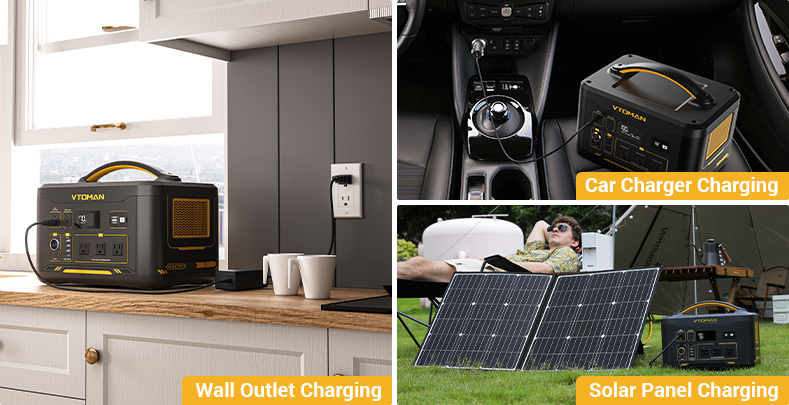The Essential Guide to Choosing the Right Camping Generator
Corps
When it comes to camping, having a reliable source of power is essential. Whether you need to charge your devices, power your lights, or run your appliances, a camping generator can provide the electricity you need. However, choosing the right camping generator can be a daunting task. With so many options available, it's important to consider your specific needs and requirements. In this guide, we will walk you through the essential factors to consider when choosing the right camping generator for your outdoor adventures.

Understanding Your Power Needs
The first step in choosing the right camping generator is understanding your power needs. Consider the appliances and devices you plan to power during your camping trip. Make a list of their power requirements, including the wattage and voltage. This will help you determine the size and capacity of the generator you need. Remember, it's better to choose a generator with a higher capacity than you think you'll need, as it will provide a buffer for unexpected power demands.
For example, if you plan to power a small refrigerator (which typically requires around 600-800 watts), a few LED lights (which require around 10-20 watts each), and charge your phone (which requires around 5-10 watts), you would need a generator with a capacity of at least 1000-1200 watts.
Consider the Fuel Type
Another important factor to consider when choosing a camping generator is the fuel type. There are three main types of fuel used in camping generators: gasoline, propane, and diesel. Each fuel type has its own advantages and disadvantages.
Gasoline generators are the most common and widely available. They are generally more affordable and offer a good balance between power output and fuel efficiency. However, gasoline can be difficult to store and transport, and it may not be readily available in remote camping locations.
Propane generators are a popular choice for camping due to the ease of storing and transporting propane tanks. Propane is also a cleaner-burning fuel compared to gasoline, resulting in fewer emissions. However, propane generators may have a lower power output compared to gasoline generators.
Diesel generators are known for their durability and fuel efficiency. They are often more expensive than gasoline or propane generators but can provide a higher power output. Diesel fuel is also more readily available in remote areas. However, diesel generators can be noisy and emit more pollutants.
Noise Level and Portability
When camping, it's important to consider the noise level and portability of the generator. Loud generators can disturb the peace and tranquility of the camping experience, as well as annoy fellow campers. Look for generators that are specifically designed for camping and have noise reduction features.
Portability is also a key factor, as you'll need to transport the generator to your camping site. Look for generators that are lightweight and compact, with built-in handles or wheels for easy maneuverability. This will make your camping experience more enjoyable and hassle-free.
Consider the Runtime and Additional Features
The runtime of a camping generator refers to how long it can run on a full tank of fuel. Consider the runtime of the generator and compare it to your camping needs. If you plan to camp for an extended period without access to fuel, you'll need a generator with a longer runtime.
Additionally, consider any additional features that may be important to you. Some generators come with built-in inverters, which provide clean and stable power for sensitive electronics. Others may have USB ports or multiple outlets for charging multiple devices simultaneously. Think about your specific requirements and choose a generator that offers the features you need.
Choosing the right camping generator is crucial for a successful and enjoyable camping trip. By understanding your power needs, considering the fuel type, evaluating the noise level and portability, and taking into account the runtime and additional features, you can make an informed decision. Remember, it's always better to choose a generator with a higher capacity than you think you'll need, as it will provide a reliable source of power for all your camping adventures.






commentaires